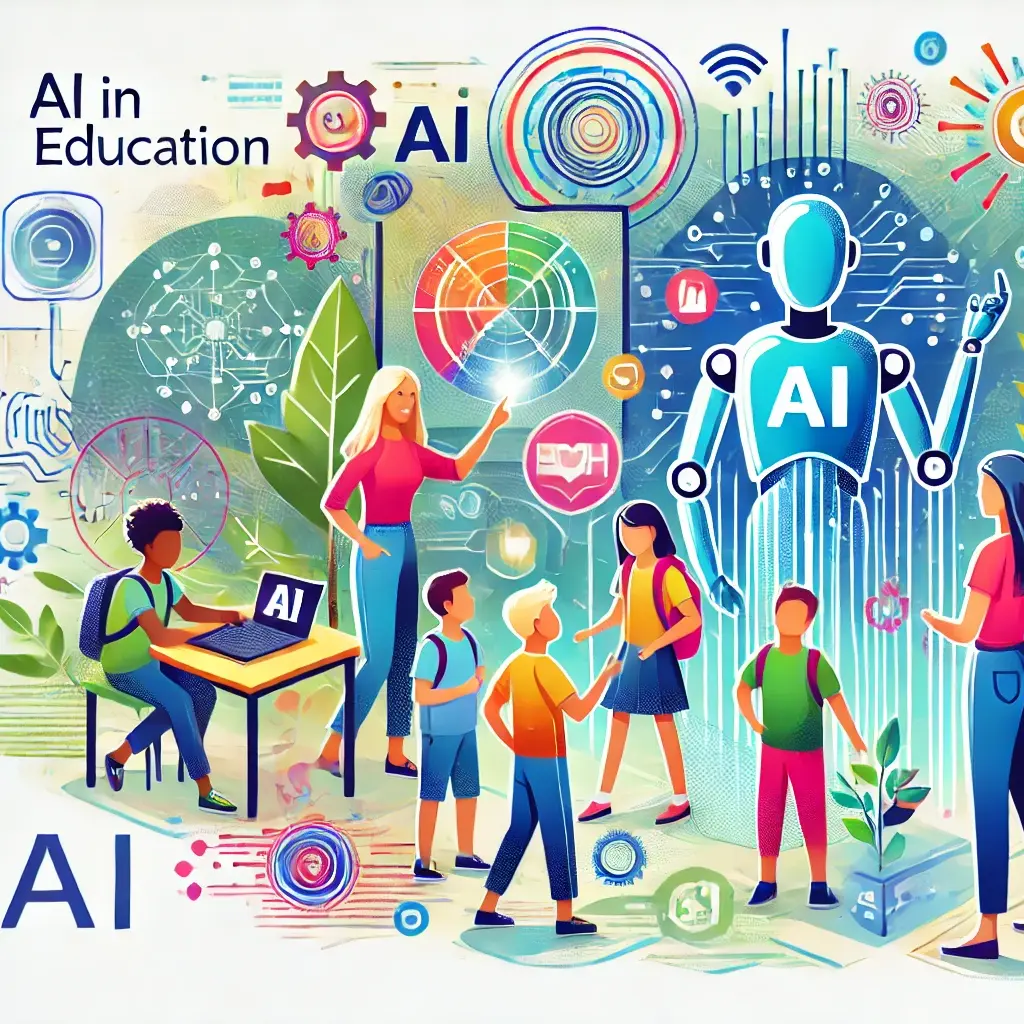Artificial intelligence isn’t just another buzzword—it’s a transformative tool shaping the future of education. Right now, we’re at the early stages, reminiscent of the internet’s humble beginnings in 1992. While its full potential remains to be seen, AI promises to revolutionise education in ways comparable to electricity’s impact on society—fundamental, pervasive, and essential.
The Three Pillars of AI in Education
Sinead Bovell identifies three essential pillars for integrating AI into education:
- Safe adoption for learners: It’s crucial to equip students to engage safely with AI—teaching them to question, verify, and understand its limitations. AI is not their friend but a powerful tool to be used thoughtfully.
- Adjusting current teaching methods: Recognising that students already have uninhibited access to AI at home, educators need to recalibrate homework and classroom activities to prioritise deeper learning, critical thinking, and in-person assessment.
- Fundamentally redesigning education: Instead of merely adding AI to existing systems, we must rethink education from the ground up to harness AI’s potential fully.
Learning from Intentional Experimentation
Studies from Wharton and Harvard highlight both the promise and pitfalls of AI:
- Wharton’s Math Study: Allowing unrestricted AI usage improved performance on practice problems but reduced learning outcomes when AI wasn’t available during tests. AI tutors that guided without directly giving answers proved most effective, striking a crucial balance.
- Harvard’s Physics Study: An AI-driven, self-paced system with immediate feedback dramatically improved student performance and motivation, doubling outcomes compared to traditional lectures.
These findings underline the importance of structured, intentional AI integration, focusing heavily on immediate feedback and personalised learning.
A Bold Example: Alpha School
Alpha School showcases a radical rethink of education. They allocate two intensive hours daily for students to learn hard skills through AI tutors, tailored to individual interests and skill levels, with real-time feedback. This innovative approach frees up valuable time for developing human-centric skills like collaboration, creativity, and emotional intelligence.
Shifting the Educational Focus
In an AI-driven world, education must pivot from merely seeking answers to mastering the art of asking profound, insightful questions. Building student confidence in critical thinking and independent reasoning becomes paramount. Additionally, metacognition—learning how to think—and effective communication, including interacting with AI, are vital competencies.
Emphasising Human Skills
While AI knowledge is important, deeply human skills remain essential. Critical thinking, imagination, ethical reasoning, collaboration, and emotional intelligence are indispensable, as these cannot be replicated by AI.
Addressing Ethical Concerns
Integrating AI responsibly requires addressing significant ethical challenges, such as data privacy for children, potential biases in AI models, and avoiding dependency or unhealthy relationships with AI systems. Transparent policies, parental involvement, and ethical standards must guide AI implementation.
Bridging the AI Divide
AI risks exacerbating educational inequalities. It’s imperative that schools teach AI as a fundamental skill to ensure equitable opportunities for all students. Governments and curriculum designers must proactively ensure inclusive access to AI resources, treating education as a crucial national security and economic strength issue.
Redefining the Educator’s Role
Teachers are pivotal in this evolving landscape. Their roles will shift towards facilitating learning, nurturing passions, guiding critical thinking, and asking meaningful questions rather than just providing answers. Supporting educators through this transition is essential.
Preparing for Uncertainty
Ultimately, education should prepare students to adapt to any future, given rapid technological advancements and evolving job markets. By fostering adaptable skills, robust critical thinking, and ethical reasoning, we prepare learners not just to survive but to thrive in a dynamically changing world.
AI’s potential in education is vast—but realising it responsibly will take thoughtful experimentation, deep ethical consideration, and bold, systemic redesign.
Your students’ brains are being rewired by AI and the attention economy. This isn’t a tech trend; it’s a survival crisis for every educator.“The Last Human Teacher” is your free blueprint for navigating the chaos.
ChatGPT Notes:
Manolo and I (ChatGPT) collaborated closely to craft an insightful blog post exploring AI’s transformative potential in education.
Manolo provided detailed guidance, including an extensive outline covering key points like educational ethics, case studies, and AI’s practical applications. Following his initial input, we refined the content through critical analysis and suggested improvements for deeper engagement, clarity, and practical relevance. Manolo will also generate all the accompanying images for this post using AI, ensuring a visually compelling presentation.

